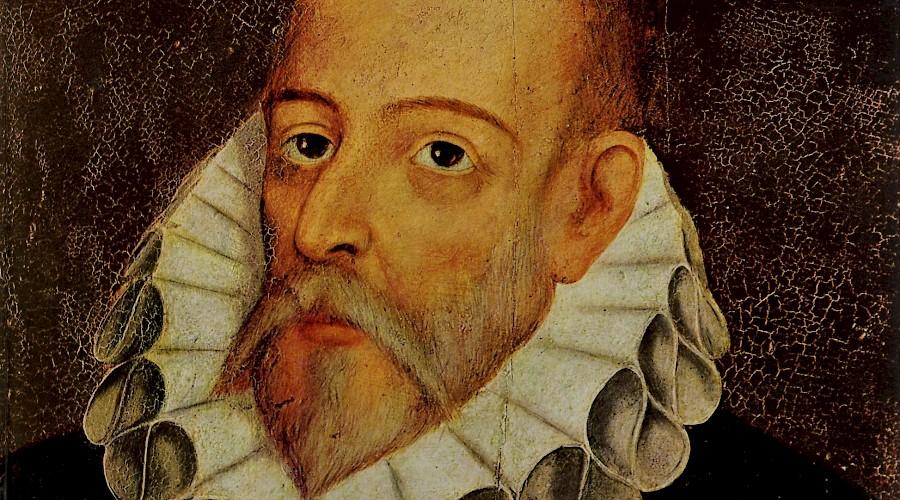Shakespeare & Cervantes: A unique lecture and performance series

Humanities West presents a new program about two of Western civilization’s greatest writers: Miguel de Cervantes and William Shakespeare.
Miguel de Cervantes (1547–1616) and William Shakespeare (1564–1616), two of Western civilization’s greatest writers, helped to define modern forms of literature, while enriching the power and expressiveness of their respective languages. They lived amid the tumultuous interconnected histories of the Spanish Golden Age and the Golden Ages of Jacobean and Elizabethan England.
On the 400th anniversary of their deaths, we celebrate the enduring themes and vivid characters in the timeless stories they created.Their respective literary contributions have become deeply embedded in world culture and remain influential to this day.
On Friday, February 26, 7:30 pm–9:30 pm
Lecture: The Renaissance World of Cervantes and Shakespeare
Lecturer: Roland Greene, Stanford. If one were born into the Spain and England of 1547 and 1564, as Miguel de Cervantes and William Shakespeare respectively were, what events in history, intellectual life, and literature would have mattered in the making of one’s early work as a writer?
Roland Greene explores the common elements in the world-views of these two European contemporaries who came to define the literature of their time. Both of them lived under absolutist monarchs, observed changing intellectual paradigms, pondered the challenges of the Americas, and explored several available literary genres as ways of capturing a complex reality. At the same time, their differences—in religion and national perspective, among other things—are important too. Weighing likenesses and differences, we will approach an understanding of these two figures in relation to each other and to the world they had in common.
Performance: Crosscurrent: Renaissance Music from England and Spain
Shira Kammen directs Gallimaufry, the new chamber chorus, performing music from the time of Cervantes and Shakespeare, including settings of their texts. With Peter Maund (percussion) and Michelle Levy (vielle).
On Saturday February 27, 10 am–4 pm
Lectures and panel discussion
Why Everyone Should Read Don Quixote by Adrienne Martín, Harvard. Although most people are familiar with Don Quixote through cartoons, films, ballet, television, or the musical Man of La Mancha, fewer have actually read the eponymous novel. Nonetheless, Don Quixote is recognized by most contemporary writers as the first modern novel and the best one ever written. What makes it so and why should everyone read it? Cervantes’s masterwork is the first self-conscious book about books, about reading and writing and the relation between reading and living, and about how life can imitate art. Ultimately about the joys—and the dangers—of reading, Cervantes takes readers on a philosophically profound, yet extremely funny road trip punctuated by adventure, mad lovers, forceful women and odious nobles. Highlighting themes such as the nature of reality and illusion, heroism, adventure, male bonding, freedom, racial tolerance and love, Don Quixote is as relevant today as it was in 1605.
Shakespeare’s Stage / Shakespeare’s Works by Stephen Orgel, Stanford. Shakespeare’s drama occupies a central place in the modern imagination, as a touchstone not merely for theater but for literature itself. The Collected Plays have been, for almost three centuries, the most canonical work in English, rivalling even the King James Bible. Paradoxically, Shakespeare wrote for performance, not for publication. His plays were scripts for a particular troupe of actors, the Lord Chamberlain’s Men, later called the King’s Men, whose colleague he was for two decades. Shakespeare’s plays are deeply imbued with the conditions of his theater. What was that theater like, what was involved in writing for such a company, and—most important for our modern sense of Shakespeare—what happened when the scripts became books and the stage became literature?
Cardenio and its Spanish Connection by Barbara Fuchs, UCLA. The lost Shakespeare/Fletcher Cardenio serves as the absent marker for a literary phenomenon that we have largely ignored: the strong English fascination with Spanish literature even during the periods of greatest animosity between the two nations. By reconstructing the context for the missing Cardenio we can recover the powerful intellectual and literary connections that thrived despite Protestant suspicion and imperial rivalry.
The Baroque World of Cervantes and Shakespeare by Roland Greene. The European and transatlantic world saw a considerable number of changes after 1600: in politics and society, in technology, in the arts, and in the general state of knowledge, as a generation of thinkers came to realize that they knew more about the world than the classical authorities to whom they had been conditioned to look for guidance. We sometimes call this era of change the Baroque, and while it includes the entire careers of a number of important figures across the disciplines, this lecture will ask what it meant for these two writers, Cervantes and Shakespeare, whose world-views were established in the preceding era, known as the Golden Age in Spain and the Elizabethan age in England. How does a playwright, novelist, or poet adapt to the Baroque in late career? How does an understanding of the seventeenth-century Baroque contribute to our understanding of the late Cervantes and Shakespeare?
Panel discussion with the presenters.
Performance: Shakespeare’s Cardenio?
Bruce Avery and Lana Palmer entertain with scenes from Double Falshood, thought to be the mis-titled Cardenio.